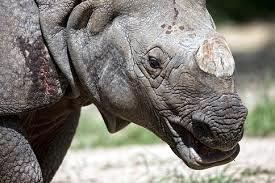The future of illegal wildlife trade
Call for participation

Photo: Rhino
The Illegal Wildlife Trade (IWT) is a major and growing global threat to biodiversity, affecting both plants and animals. It is one of the highest valued illicit trade sectors and poses threats to public health and security, making it one of the greatest pressing challenges of today’s society. Due to the magnitude and complexity of IWT, conservationists are often only able to fight crises on the ground. To support a more proactive approach, we are leading a Horizon Scan to identify and prioritise emerging issues that are likely to have either a high positive or negative impact on IWT in the next 5-10 years.
We invite all those interested in contributing expertise and insight to participate. You do not need a deep understanding of IWT or be working within the area to participate. We are especially keen to hear from those in different institutions, disciplines and sectors who are open-minded thinkers, aware of how their expertise, insight and relevant knowledge could apply to IWT. Findings will be used to inform global policy and decision-making in advance of the 2018 London IWT Conference. The aim is to take advantage of this timely opportunity to raise awareness of political implications, pre-emptively address challenges while solutions are realistic and enable more effective and strategic conservation action.
To find out more and how to take part in this study, please see Call for Participation for further information. Please note: submissions can be lodged in multiple languages and participation will be facilitated remotely, but is restricted to those aged 18 years or older. You are under no obligation to take part. Additional inquiries can be addressed to Nafeesa Esmail at nafeesa.esmail@zoo.ox.ac.uk.
The deadline for submitting issues is April 13, 2018.
About the Author
Diogo Verissimo applies social marketing concepts and techniques to conserve the diversity of life on Earth. He is currently an Oxford Martin Fellow at the University of Oxford, UK, where he works the design and impact evaluation of behaviour change interventions to reduce the demand for illegally traded wildlife products.



